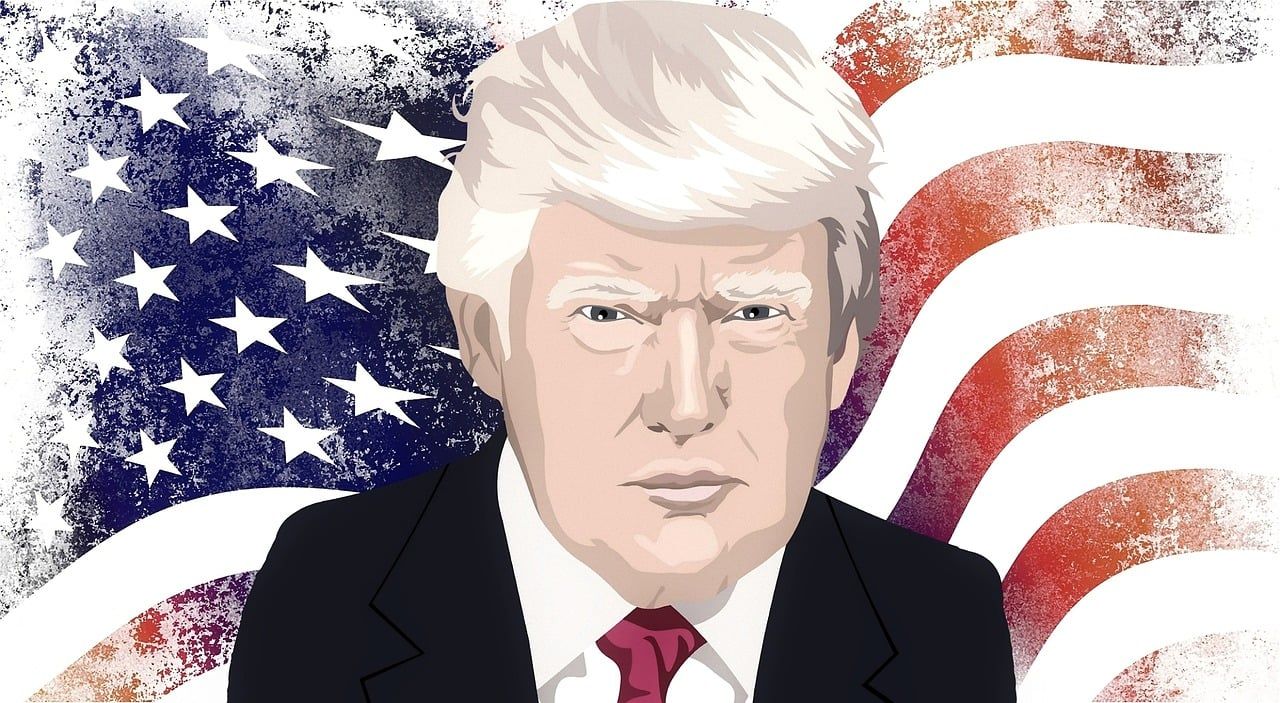From Trump meme coin endorsed state governments in the U.S. embracing Bitcoin as a reserve asset, the industry is entering uncharted territories. Solana’s blockchain has hit unprecedented peaks, driven by innovative projects like the $TRUMP coin, while the EU has implemented stringent cybersecurity regulations under DORA to protect digital finance. Simultaneously, bold predictions like Bitcoin reaching $200,000 are sparking debates about the future of digital assets. This comprehensive analysis dives into the events shaping crypto’s evolution and their lasting impacts on markets and innovation.
1. Can Trump’s Crypto Policies Survive Beyond His Administration?
The Trump administration’s pro-crypto stance has introduced a wave of optimism, with significant steps being taken to foster digital asset growth. The appointment of key crypto advocates to advisory roles and an administration-driven focus on blockchain technology underline these efforts. Policies include supporting innovation, reducing regulatory barriers, and attracting institutional investments. Yet, much of the framework rests on executive orders, making its survival heavily dependent on political dynamics. Future administrations or Congress could either bolster or dismantle these policies based on partisan interests.
If institutional trust grows due to these policies, it could spark a wave of global competitiveness in blockchain adoption. However, without permanent legislation, there is uncertainty regarding their long-term impact. The crypto industry is at a crossroads where a lack of regulatory clarity could deter growth despite current momentum.
Impact on Markets
The current enthusiasm in U.S. crypto markets reflects optimism over these regulatory shifts, with increased activity in blockchain-based startups and cryptocurrencies like Bitcoin. Yet, any political reversal could cause volatility, potentially cooling the broader adoption and innovation push in the blockchain space.

2. Official Trump Meme Coin Triples in Price Amid Binance, Coinbase Listings
The launch of the $TRUMP meme coin on the Solana blockchain caused its price to surge by over 300%, skyrocketing to a market cap of $8 billion. This immediate success is due to high-profile exchange listings and the hype surrounding Trump’s endorsement. Built on Solana, the coin has brought significant attention to the blockchain’s speed and low costs, elevating its reputation.
The coin's massive insider ownership—80% linked to Trump-affiliated entities—raises concerns about ethical risks and potential market manipulation. Critics argue the coin’s success could open doors for misuse of political influence in crypto markets. Despite these controversies, the project’s visibility is a win for Solana, driving higher transaction volumes and adoption.
Impact on Markets
$TRUMP's rapid adoption strengthens Solana’s position in the blockchain industry. However, ethical concerns surrounding insider holdings could cast shadows on the coin's longevity and market trust, potentially spurring regulatory scrutiny.

3. U.S. States Consider Strategic Bitcoin Reserves
States like Texas, Ohio, and Pennsylvania are exploring Bitcoin reserves to diversify their finances and hedge against inflation. These initiatives reflect growing acceptance of cryptocurrency as a strategic asset by governments. Texas and Ohio have introduced legislative proposals to establish state-run Bitcoin funds, while Pennsylvania plans to allocate up to 10% of its reserve funds to Bitcoin investments.
This movement demonstrates cryptocurrency’s shift from speculative to institutional-grade assets. Bitcoin’s decentralized, deflationary nature aligns with states' goals of financial security amidst rising inflation. Yet, critics argue that Bitcoin’s volatility may endanger public funds. Long-term success will rely on states adopting a balanced approach to mitigate risks.
Impact on Markets
Institutional adoption, especially by governments, adds credibility to Bitcoin, potentially attracting more institutional investors and strengthening its price stability. Such moves could encourage broader U.S. adoption, bolstering Bitcoin's position as digital gold.

4. DORA Regulations Reshape Cryptocurrency in the EU
The EU’s Digital Operational Resilience Act (DORA), implemented in January 2025, introduces stringent cybersecurity and operational standards for financial institutions, including crypto firms. The legislation mandates regular system testing, incident reporting, and third-party oversight to ensure digital resilience. For crypto providers, this marks an era of greater scrutiny and compliance requirements.
While challenging for smaller players, DORA could standardize the industry, enhancing trust among users and investors. It aligns with the EU’s ambition to be a global leader in cryptocurrency regulation. However, immediate compliance requirements leave little room for adaptation, especially for unprepared entities.
Impact on Markets
DORA bolsters crypto credibility in the EU by ensuring operational resilience. Enhanced security measures could attract institutional players, yet heightened compliance costs might exclude smaller firms, leading to market consolidation.

5.Solana Hits $275 Lifetime Peak as Official Trump Meme Coin Surges
Solana’s blockchain reached new heights, with SOL trading at $275 and peaking at $293. This growth aligns with the popularity of the $TRUMP meme coin, built on its network. Solana's scalability, low fees, and high transaction speeds make it a favorite among developers. The surge in transaction volumes due to $TRUMP activity highlights the network’s utility, further solidifying its position as a top blockchain.
Solana’s growth also reflects increasing competition among blockchains to host high-profile projects. However, reliance on volatile trends like meme coins can introduce risks, as a decline in such projects could negatively impact its valuation.
Impact on Markets:
Solana’s success demonstrates how innovative projects can elevate blockchain ecosystems. Continued adoption could attract more developers, although reliance on speculative tokens like $TRUMP presents challenges.

6. Blockchain Firm Projects Bitcoin at $200,000 by 2025
A Standard Chartered report predicts Bitcoin could reach $200,000 by 2025. The bank attributes this to growing institutional adoption, particularly via Bitcoin ETFs. Increased regulatory clarity in major markets and enhanced trust in Bitcoin as a digital store of value contribute to this bullish forecast.
However, achieving this milestone requires consistent global regulatory progress. While institutional investments bolster Bitcoin’s market cap, high volatility and geopolitical uncertainties could pose challenges to these ambitious predictions.
Impact on Markets:
Such projections drive optimism, encouraging both retail and institutional investors to increase Bitcoin exposure. If Bitcoin approaches these levels, it could redefine its role as the primary cryptocurrency.


